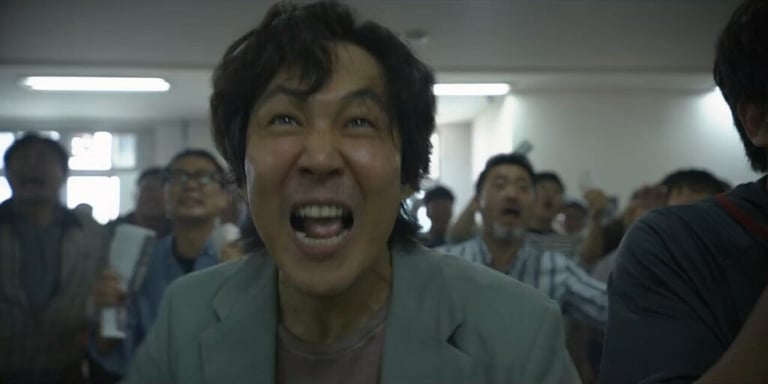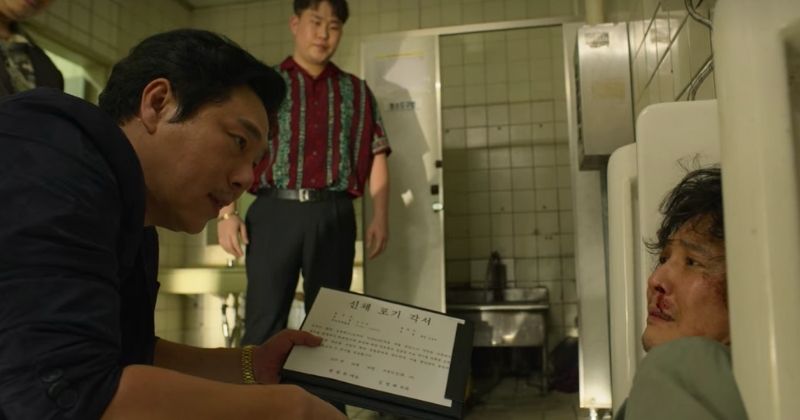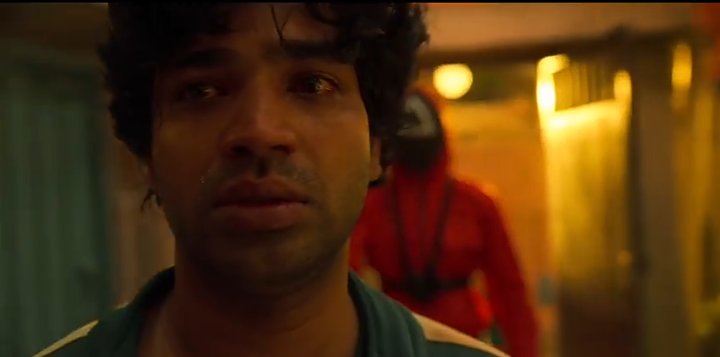[This article contains major spoilers for Squid Game] What happens when cash-strapped individuals play deadly children’s games for a chance to win a boatload of money? That’s basically the premise of the latest Netflix hit, Squid Game. In a show about the consequences of bad financial decisions, we’re bound to learn money lessons that we can easily apply in our daily lives. Here are just some of them.
But What Exactly is Squid Game?

If you haven’t seen Squid Game on Netflix[1], then you’re really missing out on nine hours of thrilling television. Squid Game follows Seong Gi-hun, a deadbeat dad who owes a lot of money from loan sharks and banks, as he enters the mysterious and dangerous Squid Game where participants are forced to play children’s games with deadly consequences.
Along the way, Gi-hun befriends Cho Sang-woo, Gi-hun’s childhood friend and a disgraced banker running away from criminal charges; Kang Sae-byeok, a North Korean pickpocket looking to provide for her younger brother; Abdul Ali, an undocumented and underpaid migrant worker; and Oh Il-nam, an old man whose health is slowly deteriorating.
Together, they form a team to try and survive the twists and turns brought about by the game master, a masked man calling himself The Front Man. They have to figure out how to survive the game while avoiding murderous players from killing them in between rounds. Can they actually win the game and walk out with the prize money, or will they die trying?
Money Lessons We Can Learn From Squid Game
Thankfully, we don’t have to play Red Light, Green Light or lick sweet cookies to learn money lessons from Squid Game. Here are some financial insights Gi-hun and the gang taught us over the course of nine episodes.
1. Focus on paying off your debt

Episode 1 of Squid Game introduced Seong Gi-hun as a deadbeat father who still relies on his old mother for financial support. He then steals his mother’s ATM card and withdraws money just so he can bet on horses. And after somehow winning, instead of paying off his debt, he decided to run away and have his money stolen by an unassuming Kang Sae-byeok.
Gi-hun bagged ₩4,560,000 from that horse race. What he should’ve done is take a portion of it and use it to pay off his debt. If you’re in the same boat as Gi-hun, focus your efforts on paying off your debt before splurging your money on other things. You won’t be able to focus on building your own wealth if you keep running away from your financial obligations.
2. Don’t let others borrow your cards
Speaking of stealing ATM cards, this is also another lesson you should take to heart: never let others borrow your debit and credit cards. Just take Seong Gi-hun for example. If he’s willing to steal from his ailing mother who breaks her back just to support his son financially, assume that the people you trust can also do the same. It sounds harsh, but it's sound advice.
The ATM scene should also be your reminder to improve your passwords, especially for your financial accounts. Make it harder for hackers to steal your money. Use passwords that only you can decipher and avoid poor cybersecurity practices like using names and birthdays as passwords. Also, don’t share your passwords and stop taking selfies with your cards!
3. Don’t trust loan sharks at all costs

Sticking with Episode 1, Squid Game really wants to hammer the point that loan sharks should never be trusted at all costs. Aside from their aggressive debt collection practices, Gi-hun’s loan shark creditors were portrayed as intimidating and disgusting. Why would you even lick someone’s blood just to prove you’re a badass? Never borrow money from these people.
While loan sharks in the Philippines are probably not as cartoonishly evil, their debt collection practices are still considered unfair and criminal. Recently, the Department of Justice (DOJ) issued a public advisory[2] against online loan providers who illegally harass their clients for payments. Know that there are legitimate loan providers you can run to in these hard times.
4. Spend your money wisely, no matter how little
Wow, Episode 1 really had a lot of money blunders, huh? After losing all his money and somehow gaining 10,000 won, instead of buying a decent gift for her daughter, he used the little money he had to try and win a gift box from a claw machine, believing it’s a nice gift. Turns out, the box contained a lighter that looked exactly like a gun. Great gift for kids, right?
Always remember that every peso counts, whether you have a lot of money or not. By spending money wisely, you’ll find more opportunities to save money without even trying that hard. Live within your means and focus on growing your wealth instead, so you can live the lifestyle you want and have the funds to support it. Don’t spend money just to look like you have money.
5. Never underestimate the importance of insurance

In Episode 2, after suggesting that she stays in the hospital and let the insurance pay for the medical expenses, Seong Gi-hun’s mother revealed that he cancelled the insurance and spent the money somewhere else. So if Gi-hun kept paying for insurance, he could’ve helped her mother get the medical help she needs. This is why having insurance is really important.
You might think you’re healthy today but when an emergency strikes, a health or life insurance policy can help pay off expensive medical services. You probably ignored getting car insurance because you think you’re a safe driver. Remember that you’re just one bad day away from the worst-case scenario. Consider protecting yourself financially with an insurance policy.
6. Don’t put all your eggs in one basket
In Episode 3, Cho Sang-woo shared a lesson he learned straight from business school right before the dreaded Honeycomb Game: “Don’t put all your eggs in one basket.” And while Gi-hun and Il-nam ended up with the shape that’s more challenging to carve, Sang-woo’s money personality and cunning increased the team’s chances of survival by a lot.
You can also use this mantra when it comes to your financial decisions. Looking to open a savings account? Don’t just open one; open at least two so that you have more saving options. Looking to invest? Don’t just settle with one investment platform; grow your money in other investments and inflate your investment portfolio. Now go look for more baskets!
7. If it’s too good to be true, it probably is

As early as Episode 1, Gi-hun should’ve realized that the Squid Game salesman’s pitch was too good to be true. But perhaps the worst example of believing something that’s too good to be true happened in Episode 6 when the lovable but gullible Ali Abdul believed every word of Sang-woo, resulting in Ali’s heart-breaking death courtesy of the man he trusted the most.
You’ve probably heard people promise you all the riches in just a short amount of time. If you were smart enough not to fall for these tricks, congratulations! Before agreeing to anything, always make sure you do your research before you trust the people or company you’re planning to do business with. This is the best way to avoid all forms of scams out there.
8. Always compare and analyze your options
In the heart-stopping Episode 7, players were tasked to cross a bridge from a dizzying height by jumping on platforms that are either made of fragile glass or sturdy tempered glass. While the others plummeted to the concrete floor below for choosing the wrong platform, Player 017 was able to use his experience as a glass maker to choose the right platform to jump on.
And since you won’t end up in a Squid Game anytime soon, what you can take away from this is the importance of an informed decision. So when you’re faced with a decision (choosing a credit card, starting a business, etc.), it’s important to do your research first before taking any financial responsibility. Don’t leap to your financial death without checking the financial glass first.
9. Know when to ask for financial help

The often cagey and secretive Kang Sae-byeok had a tough time trusting people around her for the majority of the show. But in Episode 8, Sae-byeok finally learned to ask for help by entrusting her younger brother to Gi-hun after she received a fatal wound from the previous round. It was a sad yet eye-opening episode that will make you realize that there’s no shame in asking for help from the people you love or from financial establishments.
Most people don’t share their financial hardships before it’s too late. Instead, they try to solve their problems on their own without knowing that they’re digging themselves a deeper hole. If you need any kind of help—financial or not—you should know when and how to ask for help from the people around you. And if it’s financial, you should know you have options like getting a personal loan or applying for a debt consolidation plan.
10. Find genuine ways to enjoy your earnings
In a shocking yet polarizing twist, it was revealed in the finale of Squid Game that Il-nam, the endearing old who captured everyone’s hearts, was actually the mastermind behind the deadly battle royale. He revealed to a shocked Gi-hun that he did it because he was so bored of having too much money, he wanted to experience being alive again. Isn’t that sad?
The show is trying to tell us that money shouldn’t be your ultimate goal in life. In a world where hustle culture[3] is often celebrated, you should find ways to enjoy the fruits of your labor. No matter how hard you work, you should always treat yourself every once in a while and spend time with your loved ones every chance you get. Enjoy the now while working hard for the future. That’s the balance you need to find.
Final Thoughts
Who knew we could learn valuable money lessons from such a violent show? Kidding aside, Squid Game pretty much showed us how your choices will ultimately determine your future, no matter how insignificant. So if you don’t want to be that desperate, consider changing your bad financial habits and start leading a healthy and debt-free financial life as early as now.

Sources:
- [1] Squid Game on Netflix
- [2] DOJ warns vs. unlawful debt collection practices: Where to file complaints? (PhilStar, 2021)
- [3] Stop Idolizing Hustle Culture And Do This Instead (Forbes, 2019)









